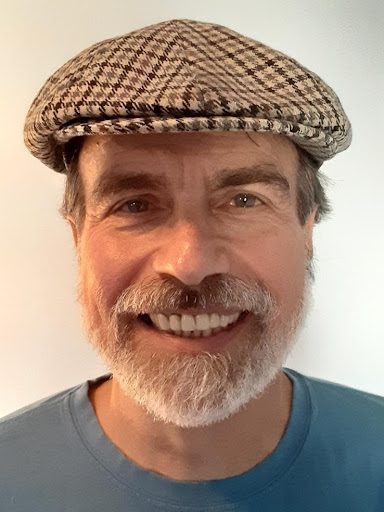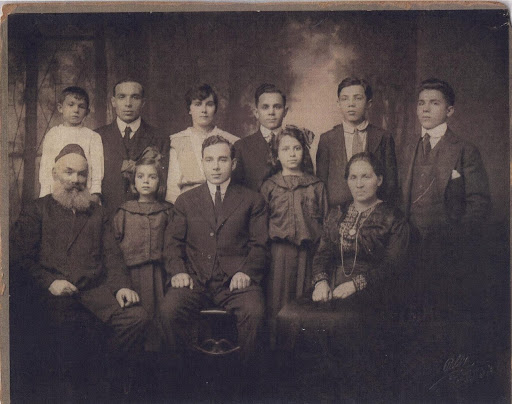Amidah
You invoke the ancestors
but the Abraham is your Grandpa Abe on your father’s side
who wouldn’t talk about his life in Russia
except to tell you that he once broke the leg of a Russian soldier
who challenged any Jew who thought he could beat him.
And the Leah is your Grandma Leah, Grandpa Abe’s wife,
who was born in Palestine when it was part of the Ottoman Empire.
You take pride in knowing she once made a dress for Eleanor Roosevelt
and you wish you had gotten to know her better
but she was a sickly woman by the time you came around.
And the Rachel is your Aunt Rachel,
the youngest of Grandpa Abe’s nine siblings.
She didn’t get old till she turned 90 and broke her hip.
After that you’d visit her in the Hebrew Home
and she’d sing, “The old gray mare, she ain’t what she used to be.”
Not so long before that you remember dropping her off
to go shopping and watching her jump over a pile of snow.
On your mother’s side you didn’t find out that your Grandma Ida’s
first name was actually Sarah until she was in her 80s.
She baked strudel and rugelach and spoke in Yiddish to your Grandpa Perry
but only when they didn’t want you to understand what they were saying.
They never went to synagogue.
Neither did your mother, Suzanne, who yanked you out of Hebrew School
on the first day you attended after your father, Seymour,
registered you the day before when he had you for the weekend.
When you asked her why, she said, “I don’t believe in that.”
End of conversation.
Maybe that’s why you’re here today.
“Kadosh, kadosh, kadosh,” you join the congregation,
rising up on your toes a little higher with each recitation of “holy”
as you imitate the angels fluttering in their celestial choir.
Do you believe that?
Do you believe that God “supports the falling, heals the ailing, and
loosens the chains of the bound”?
Your mother took her life at 32.
Your brother Jim died of AIDS at 34.
“L’dor v’dor.” From generation to generation. Always the ancestors.
Your great grandfather on your mother’s side, another Abraham,
had a brother named Meyer who jumped from his burning tailor shop
on the top floor of a tenement building on the Lower East Side
at the end of the 19th century.
You first hear about this from his granddaughter Dotty
who never met her grandfather as he died
the day after he crashed on to the pavement at age 29.
Dotty doesn’t know where he could be buried,
but a librarian helps you find an article about the fire
in the New York Times, which leads you to Meyer’s death certificate,
which leads you to the Washington Cemetery in Brooklyn
where you track down his grave and find the tombstones
crowded together like tenements
to the point where there’s barely any air.
You kneel down, clear away the weeds, and hug the little headstone
which is dwarfed by all the others around it.
Now the rabbi says you may add personal prayers,
the ones particular to you,
written on the backs of your eyelids
which you have begun long before
when you pulled your tallit up over your head.
Sometimes you find yourself in conversation
with those who have gone before you
and when you lower your tallit you find
that almost everyone has already sat down.
It takes a moment to get used to the light.
Share on Social Media:

Todd Friedman is a retired NYC high school English teacher who is happy to be away from red pens and administrators. His poems have been published in Jewish Currents, Jewish Literary Journal, Poetica, Brooklyn Daily Eagle, Haight Ashbury Literary Journal, English Journal, and Radical Teacher.
Photo credit: Regina Weiss
